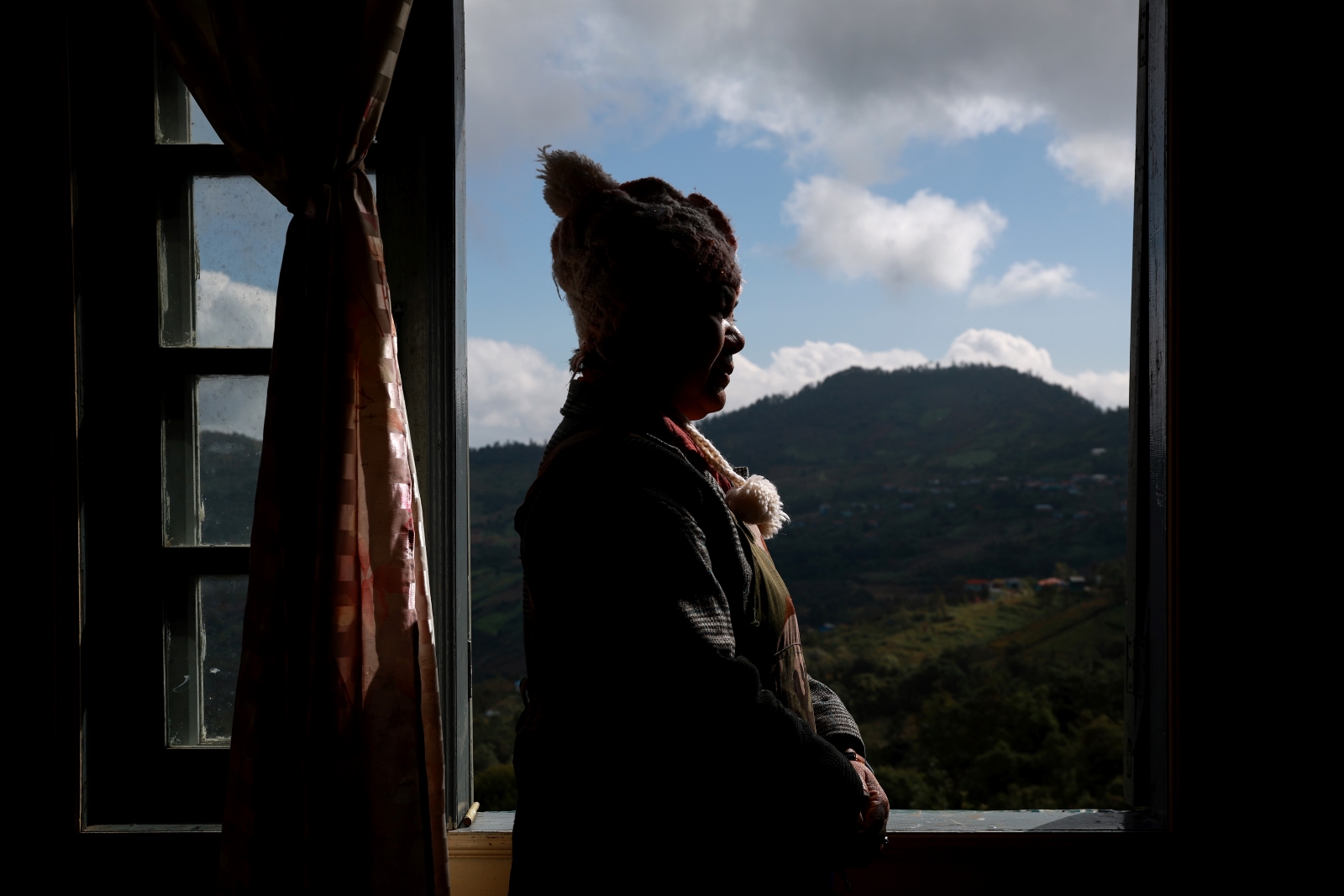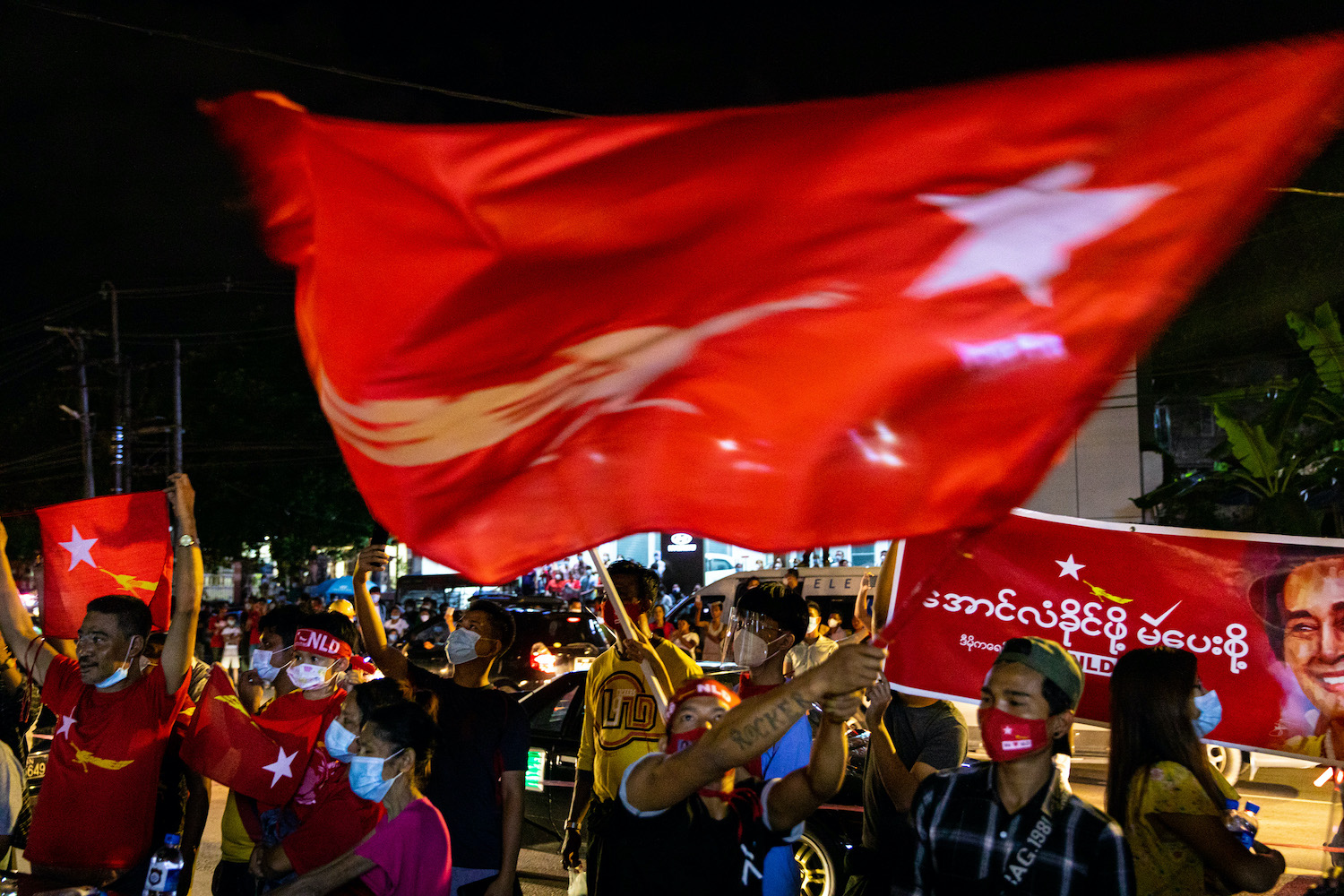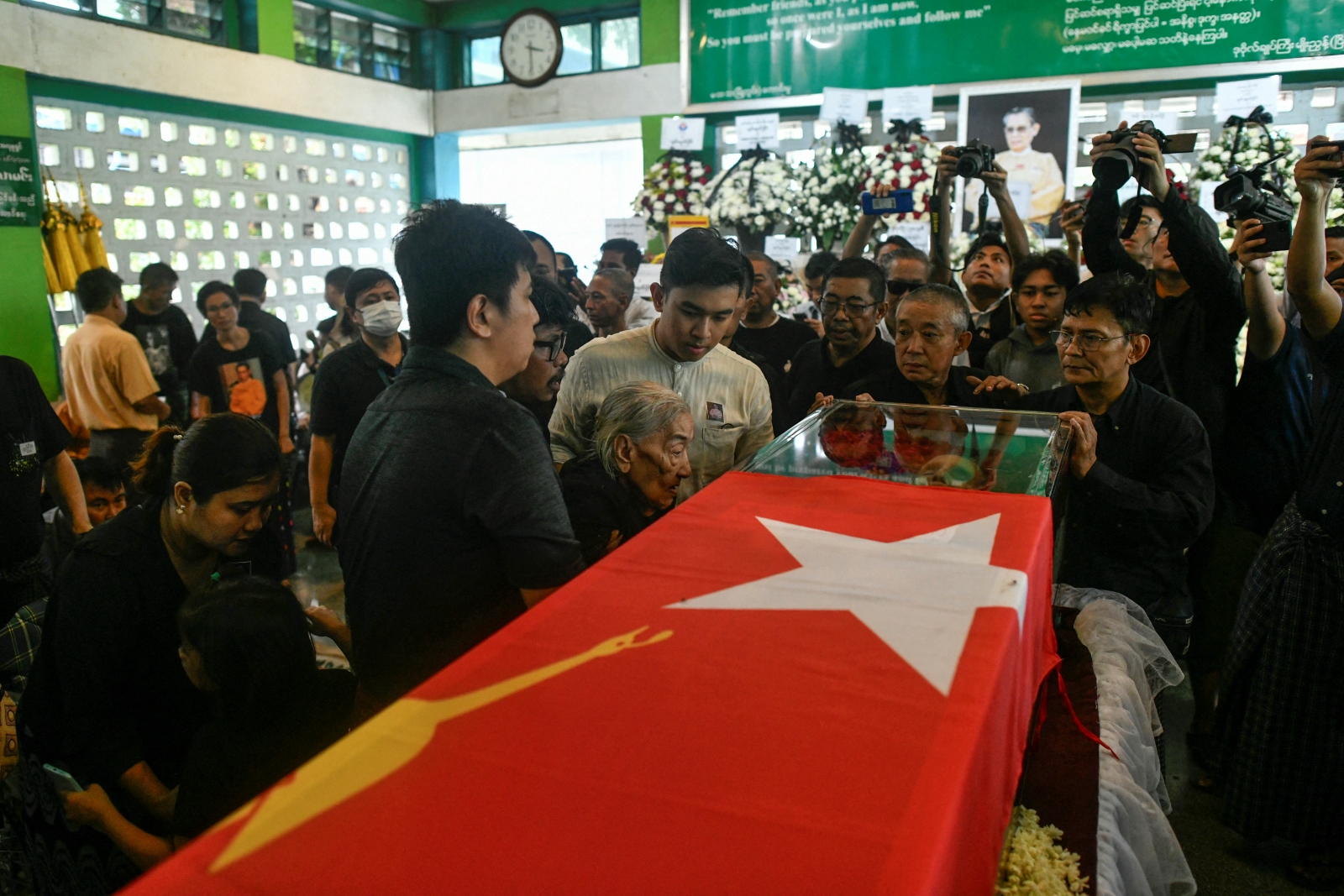Voters may have rejected Ma Ba Tha’s anti-Muslim rhetoric at the ballot box, but the hardline Buddhist nationalist movement is far from finished.
When tens of thousands of people poured into Yangon’s Thuwanna Stadium in early October to celebrate the enactment of the four race and religion bills, it was an indication of the widespread support for Ma Ba Tha, the nationalist, monk-led group that proposed the legislation.
In searing heat, thousands of monks, nuns and laypeople clapped and cheered as Ma Ba Tha’s leaders spoke of the importance of the laws for protecting Myanmar’s identity as a predominately Buddhist nation.
Although Ma Ba Tha leaders denied they were backing the Union Solidarity and Development Party in the election, their message in the months leading to the November 8 poll was clear: the USDP would protect Buddhism, the National League for Democracy would not.
The organisation endorsed President U Thein Sein over his support for the race and religion bills and told voters that Myanmar needed the incumbent to serve a second term for the sake of the nation’s protection.
The President indicated his support for Ma Ba Tha when he reportedly intervened at the last minute to ensure that the Thuwanna Stadium event could go head after it was initially blocked by the authorities.
Support more independent journalism like this. Sign up to be a Frontier member.
Ma Ba Tha’s anti-NLD rhetoric went all the way to election weekend. In Mandalay, residents woke the day before the election to find flyers outside their homes urging people to vote for the USDP because it would protect Buddhism. The NLD was denigrated as a party that supported the “kalar”, a derogatory term for people of South Asian descent. Members of both the NLD and the Muslim community said the flyers were the work of Ma Ba Tha.
Ma Ba Tha’s most outspoken member, the Venerable U Wirathu, dismissed members of the NLD as being “full of themselves”. He said the party had almost no chance of winning the election. In doing so, be badly underestimated the ability of the people to think for themselves.
I have often wondered whether Ma Ba Tha enjoyed the widespread popularity it claims. The most likely reason for the election result was a desire for change after years of military or quasi-civilian rule, but it was also an indication of widespread scepticism in the electorate about the claims of nationalist groups.
Yet nationalism is not dead in Myanmar and neither is its use as a political tool. Behind the scenes are people wielding significant power who would like nothing more than the failure of an NLD government.
The accusations that the NLD does not support the protection of Myanmar’s Buddhist identity will almost certainly increase during and after its transition from opposition to ruling party.
It will also be interesting to see if the nationalist movement decides on a change of alignment. The election result made clear that there is little support for the USDP and that the people do not want the military to be involved in politics.
However, the military will be in no hurry to relinquish its powerful political role and the USDP is likely to continue in its current form. There is a possibility that Ma Ba Tha may shift its support.
Among the parties established to contest the election was the National Development Party created by U Nay Zin Latt, a former adviser to President U Thein Sein. The NDP campaigned on a heavily chauvinist ticket and although it failed to win any seats in the election, it could possibly emerge as the main nationalist party ahead of the 2020 election.
Despite the restrained national euphoria over the NLD’s election victory, religious tensions continue to simmer.
There is a long history in Myanmar of anti-Muslim rhetoric being used as a political tool. We need to prepare for the possibility that this will happen again.






